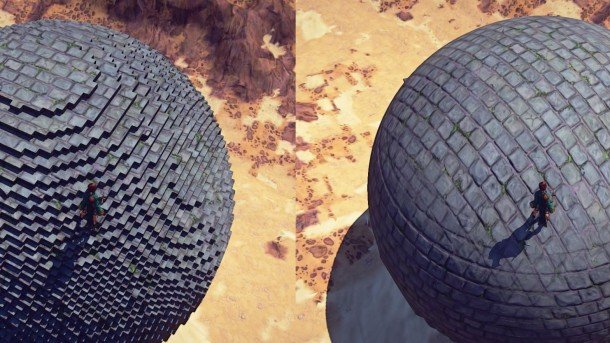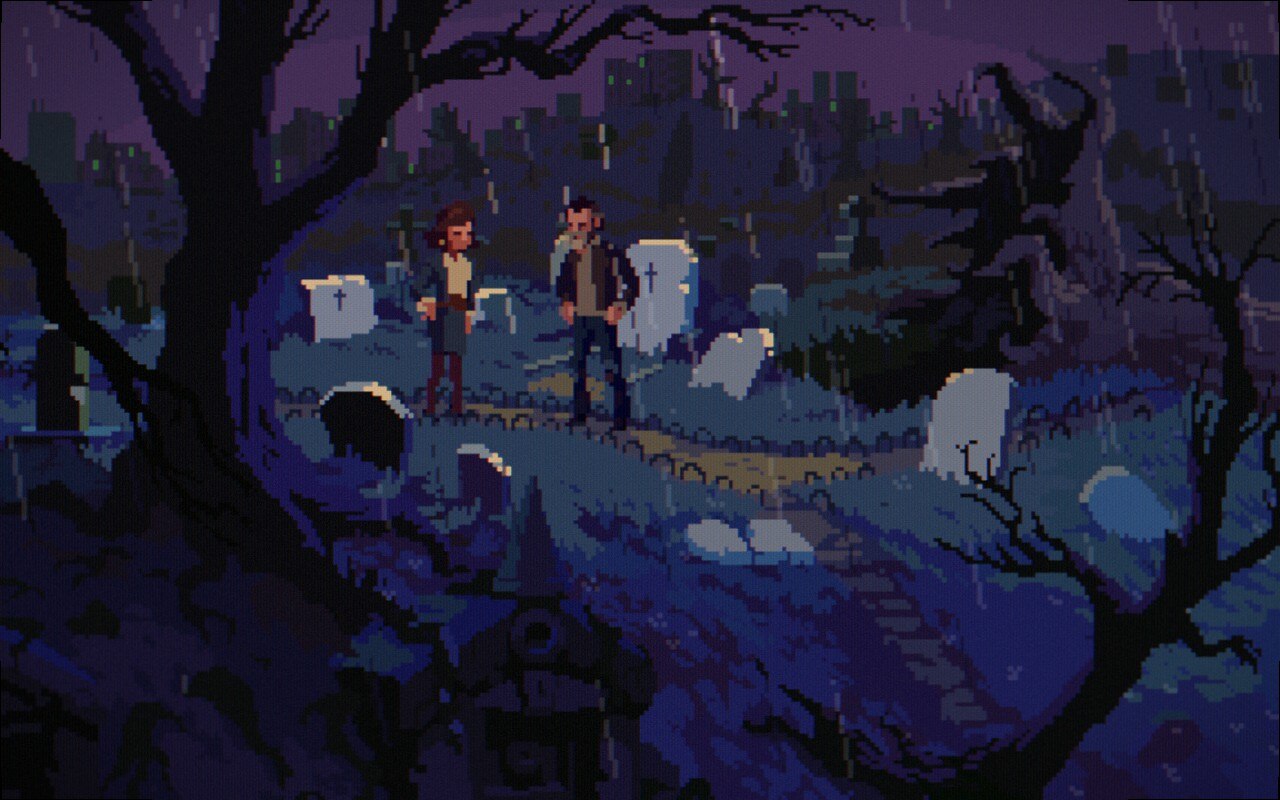EverQuest Next Landmark, a free-to-play voxel building game, coming this winter

EverQuest Next's entire environment—hills, forests, deserts, and cities—will be made of voxels, little bits of matter which can be smashed apart by explosive spells and giant Golems . Before we start breaking things, though, SOE wants us to start building—the developer is announcing today that it will be sharing its voxel building tools in EverQuest Next Landmark, a separate free-to-play MMO going into beta before the end of the year.
"Right away we noticed people were consuming a lot of cycles using these [voxel building] tools, because it's really fun to build stuff and show off to each other," said Director of Development David Georgeson in a meeting with PC Gamer. "And that's not new! Minecraft has been doing that for a while, and once we realized that we had that element within the game, we realized, 'Well, wouldn't it be cool if we gave the players the tools?'"
Georgeson showed me a brief demonstration of the tools. Take Minecraft and put it in PlanetSide 2's Forgelight Engine, then imagine you have copy, paste, and undo functions, the ability to scale and rotate cubes, and smoothing and bevel tools which can subdivide edges. I can't wait to see what players build.
"Landmark is a totally crazy thing, because we're letting them build anything, anything at all!" said Georgeson. "Well, anything that customer service allows—we'll have some interesting...but we have it handled." No 500-foot-tall penises, gotcha .
All this will take place in persistent worlds, servers which will house a thousand or more players with "chat, and guilds, and marketplaces, and brokers, and all the things you expect in an MMO."
To keep land ownership civil, players will get a flag with which to stake their claim. Their area, which can be expanded with more flags, will be protected from other players, while the unclaimed parts of the world are for free-for-all building. Georgeson also mentioned the possibility of “trustees”—players you explicitly allow to build in your territory—and experimental continents for group projects.
Players will also be able to sell their creations on Player Studio —similar to Steam Workshop—which Georgeson hopes will take off, earning money for both the creators and SOE. Even beyond direct sales, if one player builds a tower template and another buys that tower and uses it to build a castle, then sells the castle template, the original tower creator will still earn a cut automatically.
Keep up to date with the most important stories and the best deals, as picked by the PC Gamer team.
“[EverQuest and EverQuest 2] have a drawback in that you have to learn Maya, or 3DS Max, or Photoshop, and all these other tools, which greatly reduces the number of people who can participate,” said Georgeson. “In EQN and Landmark, those tools are already built into the game. They're fun and intuitive to use. So we expect players to go absolutely crazy with it.”
Georgeson also plans to work with Landmark players to turn their work into permanent fixtures in EverQuest Next proper. Every Landmark world will have a continent reserved for EQ Next art direction, where SOE will run contests to build new EQ Next areas.
"As we build EverQuest Next, as we complete all these different areas and concept pieces and all the different materials and textures and stuff that go with it, we're going to give that to all the Landmark players, and let them build EverQuest Next with us," he said. "We're really serious about this."
EverQuest Next will also allow players to build with these tools, but owning land will be a more exclusive luxury.
“[Landmark is] kind of practice mode for EverQuest Next, because when you get to EverQuest Next you'll actually have to earn your land,” said Georgeson. “You'll have to fulfill quests and stuff like that to get a land grant from the equivalent of a duke or baron, and then you can start building on that. And a lot of the stuff you create in Landmark might be able to be brought over, as long as it fits the art direction.”
Read all about SOE's exciting goals for EverQuest Next in our preview . Landmark is expected to be available before the end of the year.

Tyler grew up in Silicon Valley during the '80s and '90s, playing games like Zork and Arkanoid on early PCs. He was later captivated by Myst, SimCity, Civilization, Command & Conquer, all the shooters they call "boomer shooters" now, and PS1 classic Bushido Blade (that's right: he had Bleem!). Tyler joined PC Gamer in 2011, and today he's focused on the site's news coverage. His hobbies include amateur boxing and adding to his 1,200-plus hours in Rocket League.

